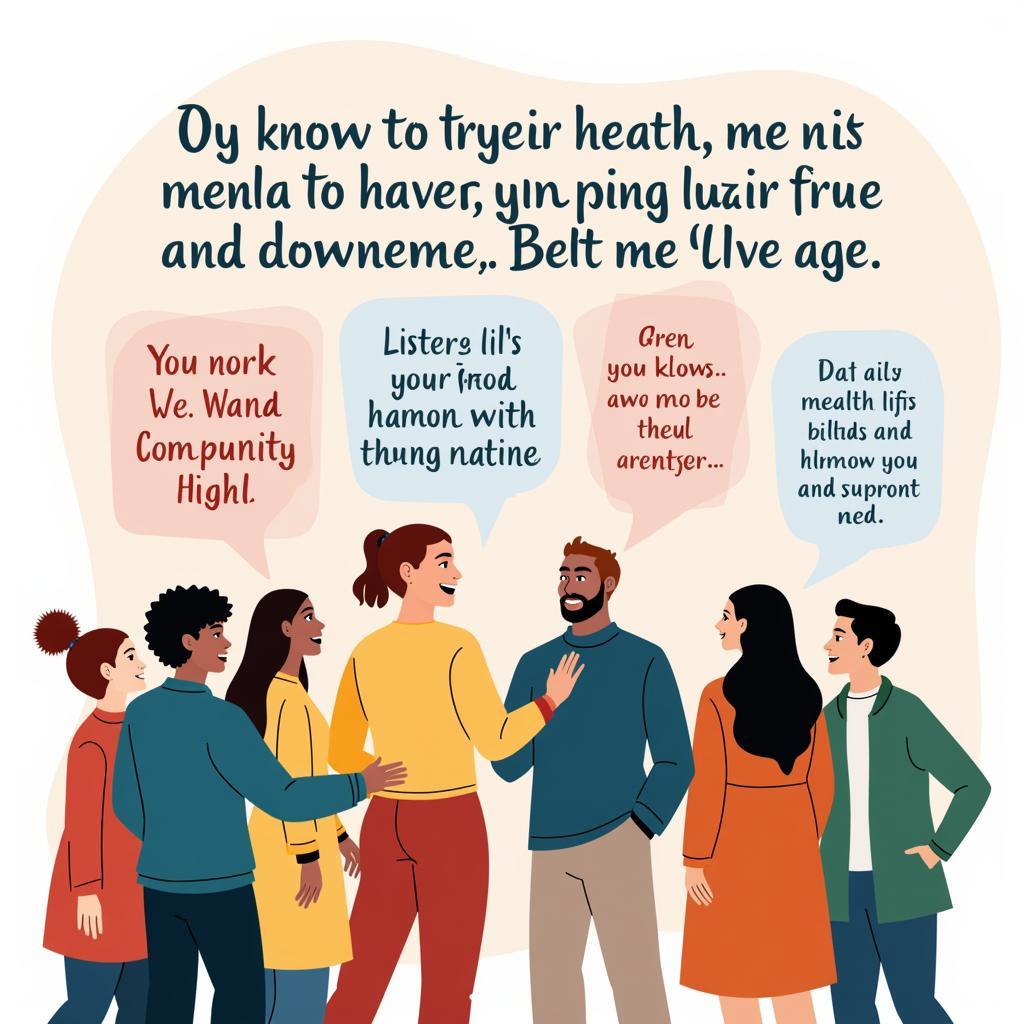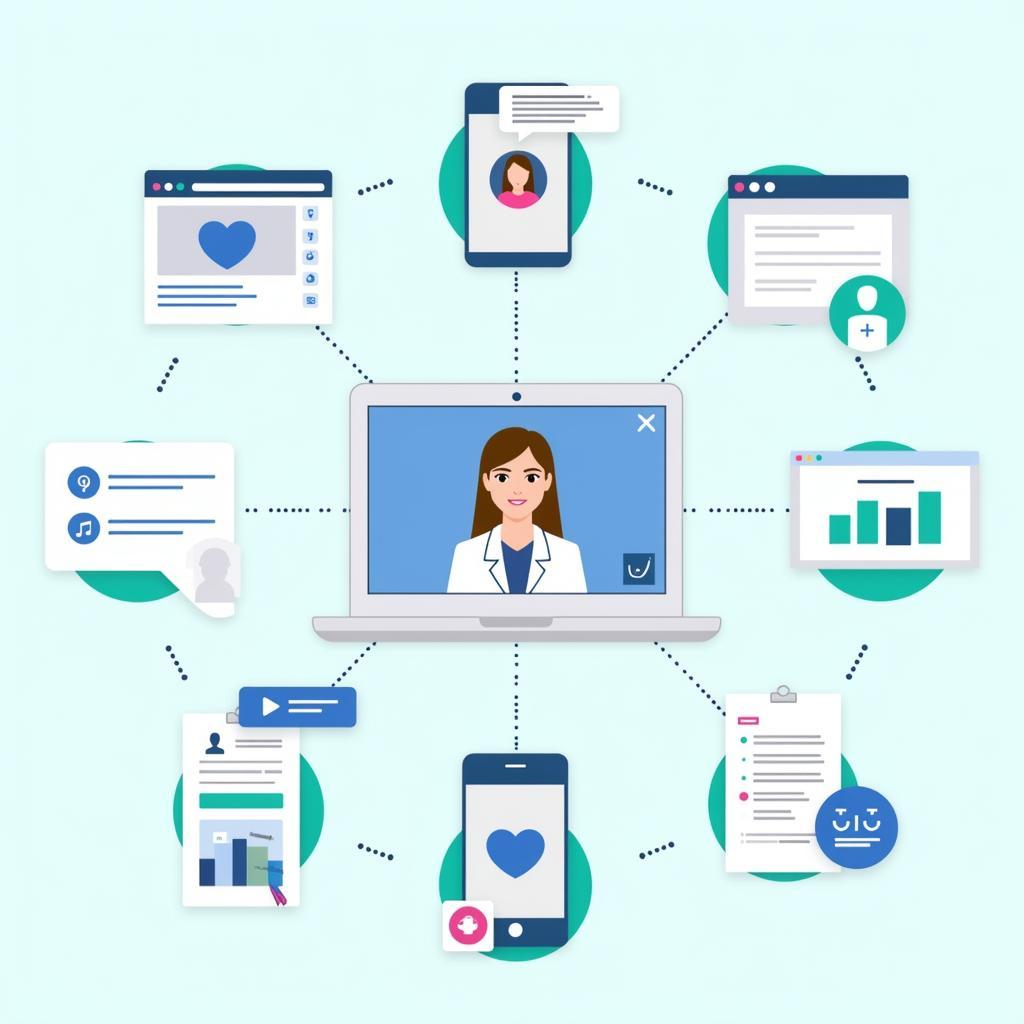Mental health awareness is no longer a niche topic but a critical component of a thriving society. Pioneering mental health awareness involves developing and implementing innovative strategies that foster understanding, reduce stigma, and improve access to mental health resources. This is paramount for building an enlightened society where everyone feels supported and empowered to prioritize their mental well-being.
Understanding the Importance of Pioneering Mental Health Awareness
Why is pioneering mental health awareness so vital in today’s world? The answer lies in the pervasive nature of mental health challenges and the profound impact they have on individuals, families, and communities. Untreated mental health conditions can lead to decreased productivity, strained relationships, substance abuse, and even suicide. By normalizing conversations about mental health and breaking down the barriers to seeking help, we can create a more compassionate and supportive environment for everyone.
Mental health is not just the absence of mental illness. It’s about cultivating a state of well-being where individuals can realize their full potential, cope with the stresses of life, work productively, and make meaningful contributions to their communities. Pioneering mental health awareness requires a multi-faceted approach that addresses the root causes of stigma, promotes early intervention, and ensures access to quality mental health care.
 Community support for mental health
Community support for mental health
Strategies for Pioneering Mental Health Awareness in an Enlightened Society
Creating an enlightened society requires a proactive and strategic approach to mental health awareness. Here are some key strategies:
- Educate the Public: Implementing comprehensive mental health education programs in schools, workplaces, and communities can dispel myths, challenge stereotypes, and empower individuals to recognize the signs and symptoms of mental health conditions.
- Promote Early Intervention: Early intervention is crucial in mitigating the long-term effects of mental health challenges. By encouraging individuals to seek help early on, we can prevent conditions from worsening and improve treatment outcomes.
- Reduce Stigma: Stigma is a major barrier to seeking mental health treatment. We need to create a culture of acceptance and understanding where individuals feel comfortable talking openly about their experiences without fear of judgment or discrimination.
- Increase Access to Care: Access to quality mental health care remains a significant challenge in many communities. We need to invest in expanding mental health services, training more mental health professionals, and integrating mental health care into primary care settings.
- Leverage Technology: Technology can play a powerful role in pioneering mental health awareness. Online resources, mobile apps, and telehealth platforms can provide convenient and accessible mental health support to individuals who may not have access to traditional care.
 Online mental health resources and support
Online mental health resources and support
What are the common signs of mental health struggles?
Common signs of mental health struggles can vary, but may include persistent sadness, feelings of hopelessness, excessive worry or anxiety, changes in sleep or appetite, difficulty concentrating, social withdrawal, and irritability.
How can I support a friend or family member who is struggling with their mental health?
Supporting a loved one involves active listening without judgment, offering practical help, encouraging them to seek professional support, and reminding them that they are not alone.
“Open communication is essential for breaking down the barriers to seeking help,” says Dr. Emily Carter, a renowned psychiatrist specializing in adolescent mental health. “Creating a safe space where individuals feel comfortable sharing their struggles is the first step towards healing and recovery.”
Pioneering Mental Health Awareness: A Collective Responsibility
Pioneering mental health awareness is not just the responsibility of mental health professionals. It’s a collective responsibility that requires the active participation of individuals, families, communities, and policymakers. By working together, we can create a world where mental health is valued, prioritized, and treated with the same importance as physical health.
Conclusion
Pioneering mental health awareness is a journey, not a destination. It requires ongoing effort, innovation, and a commitment to building a more enlightened society where everyone can thrive. By embracing these strategies and working together, we can create a world where mental well-being is prioritized and everyone has the opportunity to live a full and meaningful life. Let’s continue the conversation, challenge the status quo, and pioneer a future where mental health is no longer a taboo but a celebrated aspect of our shared humanity.
FAQ
- What are some common misconceptions about mental health?
- How can I find a mental health professional in my area?
- What are the different types of mental health treatment available?
- How can I support myself if I’m struggling with my mental health?
- What are some helpful resources for learning more about mental health?
- How can workplaces promote mental health awareness among employees?
- What role does government policy play in improving mental health outcomes?
Situations where these questions arise:
These questions often arise during times of personal struggle, when supporting a loved one, in educational settings, within workplaces, and in community discussions about mental health.
Further Exploration:
For more information on mental health awareness, explore other resources on our website, such as “[Link to another article about mental health]” and “[Link to another relevant page]”.
Call to Action:
For support, contact us at Phone Number: 02043854663, Email: [email protected] Or visit us at: Khu 34, Bac Giang, 260000, Vietnam. We have a 24/7 customer service team.